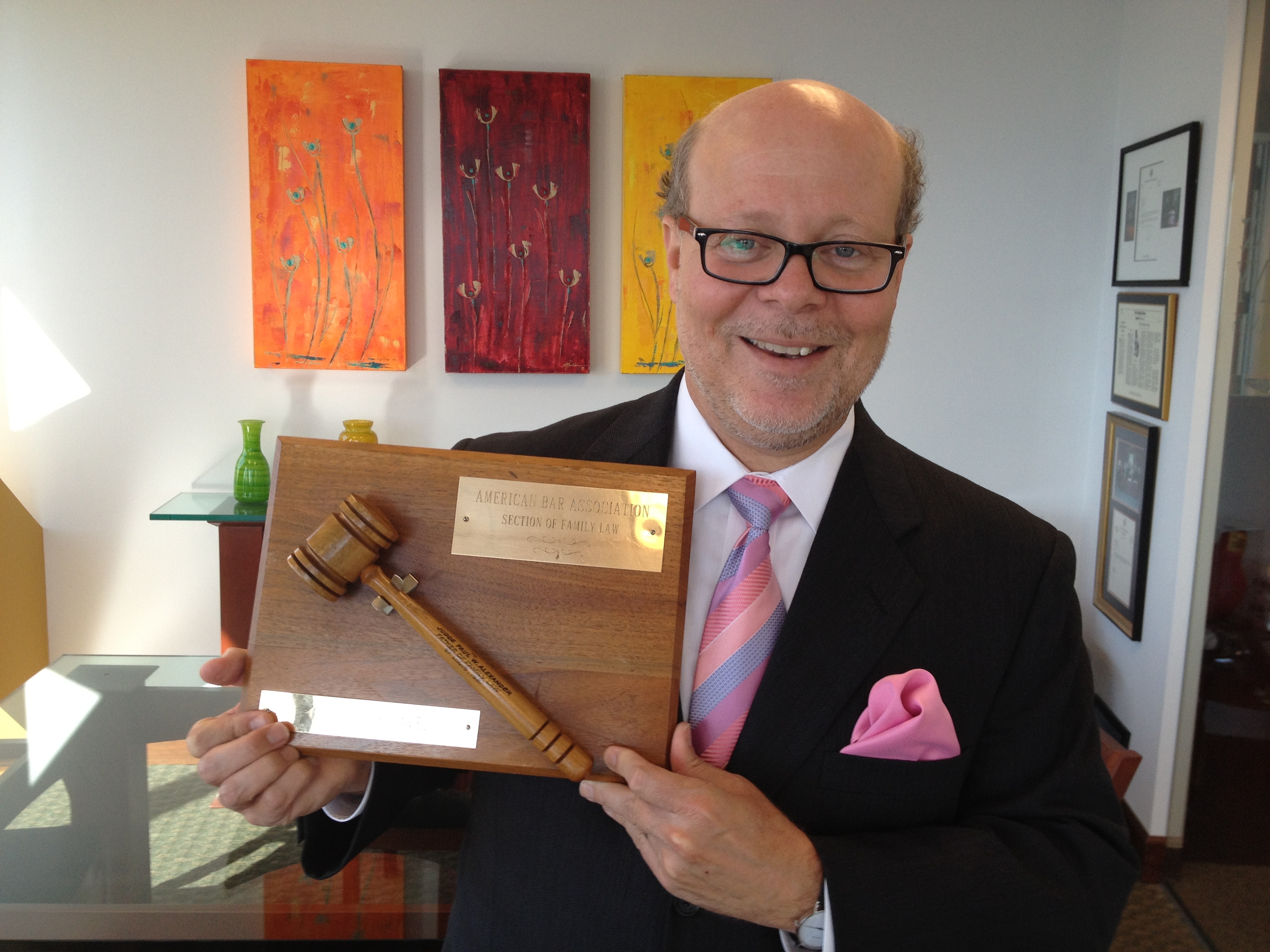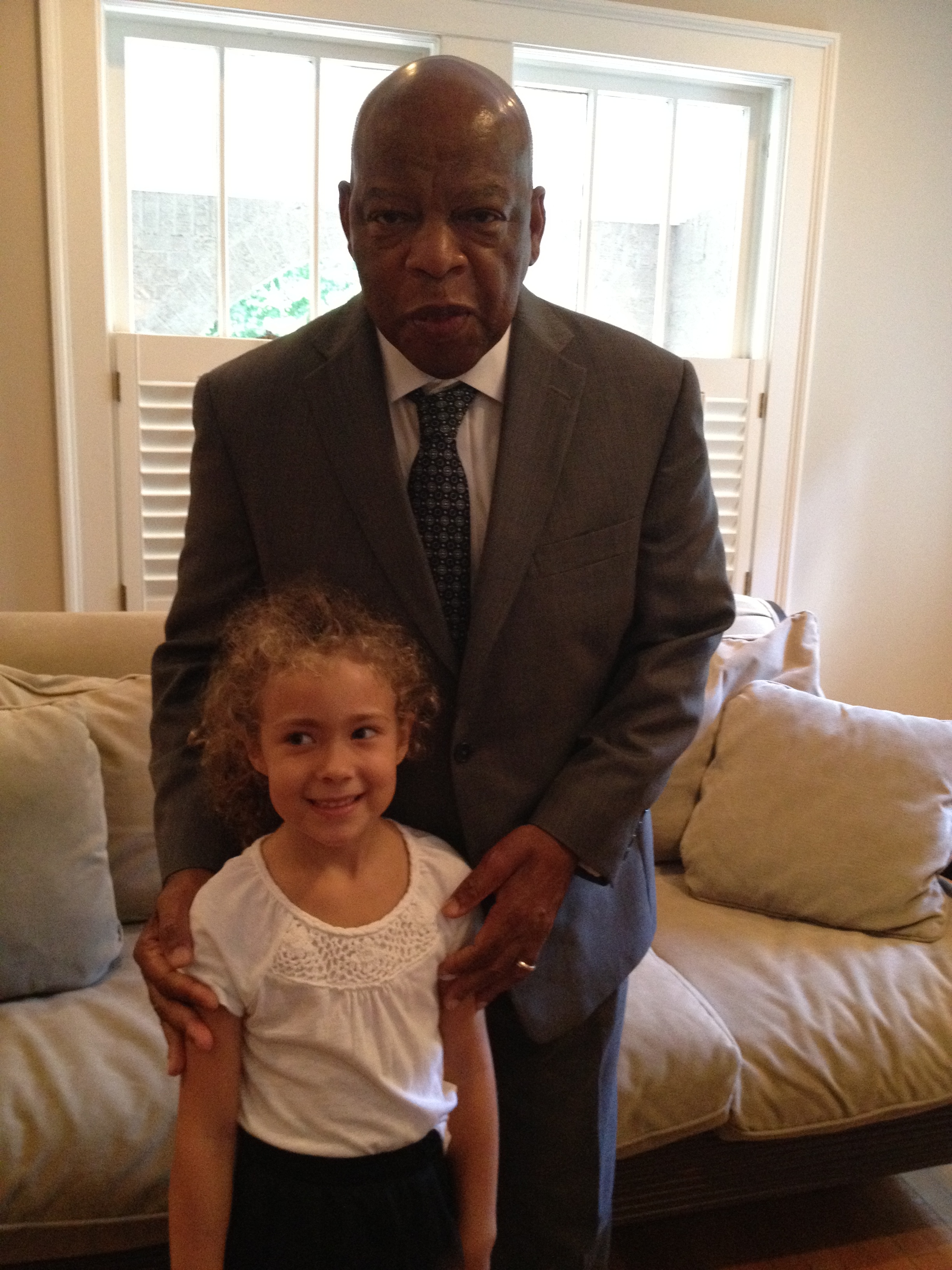 As written for my “Influencers” post:
As written for my “Influencers” post:
Once a year I travel to meet with about 20 of the finest family law attorneys in the country. This is that week. I always learn something and gain an optimism after each yearly meeting that lawyers can make a difference. We deeply explore systemic problems and ways to fix them. We discuss helping individual clients as well as how to assist the legislatures and the courts to better understand the needs of individuals embroiled in family law cases. But most importantly, the sometimes very depressing work we do on a day to day basis looks and feels much more positive when we realize we all struggle with the same dilemmas. How to convince a client that settlement is better than court. How to explain to a client that even though their spouse cheated, the children still love them both and want them to get along. How to ensure they are financially protected without spending all their savings on discovery and other legal procedures. These are dilemmas. But I know that my colleagues are good, decent people trying their best to help. This is refreshing and inspiring. I respect them and am honored to be able to join them. And I look forward once again this year to being inspired and educated. I owe it to my clients to learn as much as I can to help them. And learning from experts from around the country is one of the best ways to do that.
 I have been so fortunate to have been able to serve as Chair of the Family Law Section of the American Bar Association for the 2011-2012 term. I cannot believe the year is drawing to a close. To have been allowed to lead this section, has truly been an honor and the highlight of my legal career and bar service. About 15 years ago I served as Chair of the Family Law Section of the Atlanta Bar Association. I have served as Chair of the Standing Committee on Substance Abuse for the American Bar Association and as Chair of the Family Courts Committee of the Family Law Section of the ABA, as well as Chair of the Family Law Section of the Georgia Bar Association. This year has really been a culmination for me and I really know for sure now, that being a lawyer, and serving the bar and the community in ways beyond representing clients, is what makes ours a profession worth pursuing. I have been fortunate enough to meet lawyers and judges from across the world. And while there are many different personalities in our profession, like any other, there are so, so many people trying so hard to do good and to make the world a better place.
I have been so fortunate to have been able to serve as Chair of the Family Law Section of the American Bar Association for the 2011-2012 term. I cannot believe the year is drawing to a close. To have been allowed to lead this section, has truly been an honor and the highlight of my legal career and bar service. About 15 years ago I served as Chair of the Family Law Section of the Atlanta Bar Association. I have served as Chair of the Standing Committee on Substance Abuse for the American Bar Association and as Chair of the Family Courts Committee of the Family Law Section of the ABA, as well as Chair of the Family Law Section of the Georgia Bar Association. This year has really been a culmination for me and I really know for sure now, that being a lawyer, and serving the bar and the community in ways beyond representing clients, is what makes ours a profession worth pursuing. I have been fortunate enough to meet lawyers and judges from across the world. And while there are many different personalities in our profession, like any other, there are so, so many people trying so hard to do good and to make the world a better place.
 I recently attended an event for Congressman John Lewis. He explained how he has been getting in “good trouble” his whole life. What an inspiration he was and is. We should all get in “good trouble” and help make positive change in our world. For me, it is in my limited capacity as a family law attorney, but for all of us there is a way. My year has had it’s challenges just like any other year, but it has been quite an interesting one for Family Law. DOMA seems about ready to fall. Grandparent’s rights are evolving. International custody issues have been given more attention. We should all be helping ensure that these issues get the attention they deserve. Family Law attorneys can and should continue to help legislatures and courts understand the law and the ramifications of poorly drafted statutes or poorly interpreted laws. We should also help the public understand them. Knowledge is power and we should all be as knowledgeable as we can about the laws which shape our country.
I recently attended an event for Congressman John Lewis. He explained how he has been getting in “good trouble” his whole life. What an inspiration he was and is. We should all get in “good trouble” and help make positive change in our world. For me, it is in my limited capacity as a family law attorney, but for all of us there is a way. My year has had it’s challenges just like any other year, but it has been quite an interesting one for Family Law. DOMA seems about ready to fall. Grandparent’s rights are evolving. International custody issues have been given more attention. We should all be helping ensure that these issues get the attention they deserve. Family Law attorneys can and should continue to help legislatures and courts understand the law and the ramifications of poorly drafted statutes or poorly interpreted laws. We should also help the public understand them. Knowledge is power and we should all be as knowledgeable as we can about the laws which shape our country.
Again, I am grateful for the opportunity to serve and hope I can continue to contribute. Those of us who have been fortunate enough to be so involved have a duty to continue to help and to ensure that ours truly remains a “profession” and not just a job. Let’s keep trying to make this world a better place.
 On January 12, 2012, Dennis Collard and I will be presenting at the State Bar of Georgia on “Winning Settlement Strategies. The seminar brochure can be accessed by clicking here (click for brochure). We are the final speakers for this fine seminar being put on by the General Practice and Trial Law section of the State Bar of Georgia. Other fine speakers include Pete Law and Judge Gino Brogdon among others.
On January 12, 2012, Dennis Collard and I will be presenting at the State Bar of Georgia on “Winning Settlement Strategies. The seminar brochure can be accessed by clicking here (click for brochure). We are the final speakers for this fine seminar being put on by the General Practice and Trial Law section of the State Bar of Georgia. Other fine speakers include Pete Law and Judge Gino Brogdon among others.
Too often the focus on lawyer education is on how to go to trial. While our particular presentation does indeed cover preparing for trial, our overall point is that by preparing well for trial, you make it more likely you will achieve an appropriate settlement. As with most seminars, the best part of the day will be listening to and watching the other speakers so that I may learn from them. If you are able to join us, please do. And if you have any suggestions for us to consider incorporating into our presentation, please let us know.
Most people don’t know much about judicial elections, and most don’t care. Why should people care? What are the chances that the particular judge up for election will actually be asked to decide an issue for an individual voter? Very small. On the other hand, Governors, Senators and Representatives in the House will vote on issues that affect everyone.
But here’s the rub. If a judge does end up deciding an issue for an individual (a criminal case, divorce, business dispute or other matter), that elected official will have more input into that voter’s life than any other elected official, including the President of the United States. In Georgia we elect our judges so we have a choice in who we want resolving our disputes. Many people complain about judges, but we (or they) voted them into office.
I have heard judges discuss how interesting it is that judicial races are so far below the radar. There is no general polling and not much interest in judicial races compared to other elected offices. Yet judges, of all elected officials, carry so much power. Who else has the ability to impose a sentence of life imprisonment (or sometimes death), to remove your children from you, to kick you out of your home, to order you to pay or receive large sums of money following a car wreck? Yes, sometimes a jury can answer these questions, but judges still govern the courtroom and in child custody cases, there are no jury trials.
So what can we all do? Get educated. Learn about the current judges and those running against them. And who best to learn from? Lawyers, especially trial lawyers. Those of us who are in the courtroom regularly have a duty to tell our friends, our clients and anyone we know what we think about judges. Who the good judges or candidates are. True this will just be our opinion and may be no more valid than anyone else’s, but we have at least seen the judges in action and heard about the judges’ general reputations from our respected colleagues. And perhaps even more importantly, judges are at a disadvantage. To maintain their professionalism, there are severe limits on what they can or should say. They cannot comment about certain cases and generally stay out of public debates. So who will speak for them? We must.
So if you are a lawyer and if you are concerned about our future as a society governed by laws, spread your knowledge. And if you are not a lawyer, or not a trial lawyer, ask the trial lawyers you know what they think. That spot on the ballot for “judge” may just be the most important box you check.
Each Fall, the American Bar Association holds it’s annual Section Officers Committee meeting in Chicago. This year it begins this week. Each section, division, forum, etc. of the ABA has officers who are new each year. Those officers all come to Chicago to learn how to best perform their roles as Secretary, Vice Chair, Chair-Elect, etc. of their particular group (for me it will be as Chair-Elect of the Family Law Section). It is great to be around so many lawyers who are committed to improving the practice of law. Each lawyer sacrifices two to three days of work to be at the meeting, yet it never feels like a sacrifice. There are “big picture” discussions about the general practice of law, things we can do to help our communities, things we can do to help educate the public about new laws and how we can improve the overall workings of the entire ABA. There are also “small picture” discussion groups focused on how we can each help our particular group (family law, business law, criminal law, etc.). Click here to see the SOC page on the ABA website describing SOC.
While some may say it is inconvenient, especially since each of the officers attending also typically attend four or five other ABA programs each year, including a Spring and Fall program for their area of law as well as the ABA annual and mid-year meetings, it is valuable. It is a chance to step aside from the basic programming and educational aspects of the ABA and to focus on how we can each use our strengths to better our individual areas of practice as well as the ABA as a whole. I am looking forward to it and to actively participating. It feels good.
Politics and judgeships shouldn’t mix, but they do. Across the country judges are elected or appointed as part of the political process. Where they are elected, as they are here in Georgia, should lawyers who appear before them be allowed to contribute to their campaigns? Or, maybe the opposite makes sense, lawyers should really consider contributing since lawyers are in the best position (usually) to know which judges are better than others?
The Georgia Supreme Court is now taking a serious look at the issue. The good news is that it seems this is not a “rush to judgment”. There has been a study group and the apparently many different aspects and factors are being considered. The point I made in the first paragraph illustrates the dilemma. On one hand, is it right for lawyers who appear before a judge to contribute (or to refuse to contribute) to a judicial campaign? Does that indiciate a potential for unfair treatment (favorable for donating, unfavorable for not donating)? Perhaps? But if contributions are made to ethical candidates, then the risk is reduced. On the other hand, if lawyers are prohibited from contributing to judicial campaigns, then the contributions will come from less informed sources who may not have had nearly as much experience with the particular judge. Wouldn’t we prefer that those in the know help guide the rest of us?
This is a fascinating issue. There are lots of “workarounds”. Lawyers can (and should, in my opinion) participate actively in opinion polls about judges. Lawyers should educate their clients and friends about judicial races given the insight lawyers, at least trial lawyers, may have about certain judges. But all too often we sit on the sidelines. We know which judges are excellent and we should strive to keep them in place. This benefits society as a whole and lawyers are in a unique position to help and can, and should do their/our part.
 As written for my “Influencers” post:
As written for my “Influencers” post:



